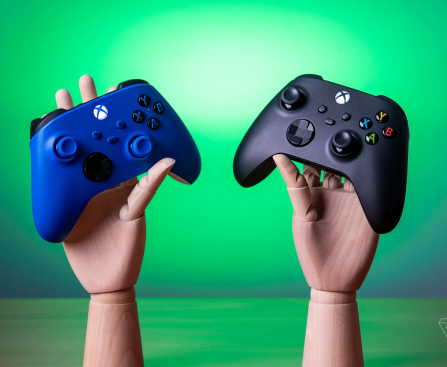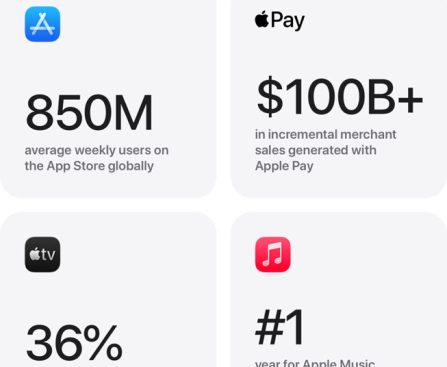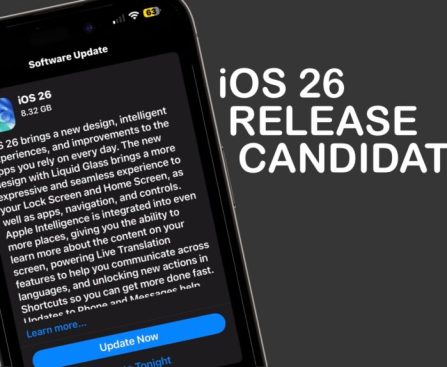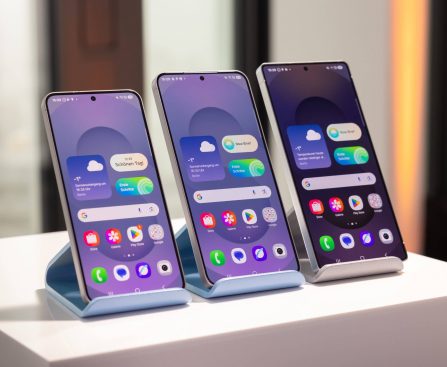Microsoft gaming boss Phil Spencer has just announced he’s leaving the company after 12 years leading Xbox and nearly 40 at Microsoft in total. His replacement: Asha Sharma, formerly head of development for Microsoft’s AI enterprise teams. Before that, she was COO of Instacart for three years, and spent four at Meta in charge of […]
Blog Posts
Blog Posts
SCOTUS Rules Trump’s Tariffs Are Illegal — But the Fight Continues
The US Supreme Court struck down some of Donald Trump’s tariffs on foreign imports, which have become a hallmark of the chaos of the second Trump administration. The court’s ruling deals specifically with duties levied using a law called the International Emergency Economic Powers Act (IEEPA), something no other president has done – the 1977 […]
Leadership Changes: Phil Spencer and Sarah Bond Depart from Microsoft
After nearly 40 years at Microsoft, Xbox chief and Microsoft Gaming CEO Phil Spencer is leaving the company, along with Xbox president Sarah Bond. Spencerâs retirement was announced in a memo from Microsoft CEO Satya Nadella on February 20th, stating, âLast year, Phil Spencer made the decision to retire from the company, and since then […]
Microsoft Claims Today’s Xbox Shakeup Won’t Lead to Game Studio Layoffs
Xbox has new leaders today, now that Phil Spencer and Sarah Bond are out – and you’d be forgiven for assuming that means yet another round of layoffs and shuttered studios, especially one day after Sony jettisoned a beloved developer. Not yet, it seems. “To be clear, there are no organizational changes underway for our […]
Apple’s iOS 26.4 Launches Public Beta Featuring AI Music Playlists, Video Podcasts, and More
Several updates are introduced in iOS 26.4, including an AI-powered playlist-generation feature in Apple Music, support for video content in the Podcasts app, end-to-end encryption (E2EE) for RCS messages, and more.Â
Apple TV’s Newest Film Reaches Milestone, Indicating an Encouraging Year to Come
Apple TV’s newest film, [Eternity](https://tv.apple.com/movie/eternity/umc.cmc.4dlymcfscta2oo4u1whkzaqpl?itscg=30200&itsct=tv_box_link&mttnsubad=umc.cmc.4dlymcfscta2oo4u1whkzaqpl&at=1000l3cvR), has emerged as a significant success shortly after its release, and the impressive array of films scheduled for the rest of the year is likely to sustain Apple’s cinematic achievements.
## Eternity has topped F1: The Movie for a complete week on Apple TV’s charts
The fresh Apple TV film, [Eternity](https://tv.apple.com/movie/eternity/umc.cmc.4dlymcfscta2oo4u1whkzaqpl?itscg=30200&itsct=tv_box_link&mttnsubad=umc.cmc.4dlymcfscta2oo4u1whkzaqpl&at=1000l3cvR), debuted just in time for Valentine’s Day last week and has accumulated significant viewership thus far.
Eternity quickly took over the top position from F1: The Movie on Apple TV’s film rankings.
I was not taken aback when this occurred at first. An A24 romantic comedy featuring Elizabeth Olsen, Miles Teller, and Callum Turner launching on Valentine’s weekend? Achieving the #1 spot seemed unavoidable.
What has astonished me is how robust its success has remained.
I anticipated that following the weekend surge, Eternity would fall behind Apple’s highest-grossing film ever—F1—on the top charts. Yet even now, a full week post-release, it continues to hold the #1 position in the US.
In summary, it’s another success for Apple—the latest in a series of prosperous film releases.
And the slate of movies set to debut throughout 2026 appears poised to maintain that momentum.
## New Apple TV films scheduled for 2026
Earlier this month, Apple [conducted a star-studded media event](https://9to5mac.com/2026/02/03/apple-hosts-apple-tv-media-event-heres-everything-thats-been-announced/) where it revealed some of the most anticipated TV shows and films coming to Apple TV in 2026.
Five future movies were showcased in the presentation, all of which show promise for strong performance.
The dark comedy *[Outcome](https://9to5mac.com/2026/02/03/apple-tv-has-new-comedy-coming-soon-starring-keanu-reeves/)* is first on the slate, set to release on April 10, featuring stars such as Keanu Reeves, Cameron Diaz, and Jonah Hill, along with a distinctive storyline.
This summer, pickleball-themed comedy *[The Dink](https://tv.apple.com/movie/the-dink/umc.cmc.5tugaz9vt498ajn7q64ypaqxn?itscg=30200&itsct=tv_box_link&mttnsubad=umc.cmc.5tugaz9vt498ajn7q64ypaqxn&at=1000l3cvR)* will premiere on July 24 as a “hilarious underdog story” featuring Jake Johnson, Mary Steenburgen, and Ed Harris.
Additionally, this fall, Apple spotlighted three major premieres:
– *[Mayday](https://tv.apple.com/movie/mayday/umc.cmc.shin43vzfoz3h4ggx41z8rf?itscg=30200&itsct=tv_box_link&mttnsubad=umc.cmc.shin43vzfoz3h4ggx41z8rf&at=1000l3cvR)*, a buddy comedy/action thriller with Ryan Reynolds and Kenneth Branagh, arrives on September 4
– *[Matchbox The Movie](https://tv.apple.com/movie/matchbox-the-movie/umc.cmc.31qa8j1tn2cnpyk3fx43w928d?itscg=30200&itsct=tv_box_link&mttnsubad=umc.cmc.31qa8j1tn2cnpyk3fx43w928d&at=1000l3cvR)*, an action-adventure piece starring John Cena and Jessica Biel, is set for release on October 9
– *[Way of the Warrior Kid](https://tv.apple.com/movie/way-of-the-warrior-kid/umc.cmc.21vzhs44oeejdkoxenkcdmre0?itscg=30200&itsct=tv_box_link&mttnsubad=umc.cmc.21vzhs44oeejdkoxenkcdmre0&at=1000l3cvR)*, set to debut later this year, is generating considerable buzz.
Apple Unveils Xcode 26.3 Release Candidate 2
### Xcode 26.3 Receives a Second Release Candidate
Apple is deploying the second Release Candidate (RC) of Xcode 26.3, which will include agentic coding functionalities. This update holds significance as it incorporates AI coding instruments like Anthropic’s Claude Agent and OpenAI’s Codex, improving the development experience for coders.
Earlier this month, Apple revealed that Xcode 26.3 would acquire these cutting-edge coding features, intending to optimize the coding workflow and boost productivity. The initial Release Candidate of Xcode 26.3 was launched around the same period as RC versions of iOS 26.3, macOS 26.3, and other platforms. Nevertheless, when these operating systems officially debuted on February 11, Xcode 26.3 was noticeably missing, suggesting that further enhancements were required.
The introduction of Xcode 26.3 Release Candidate 2 indicates that Apple is still fine-tuning the software to ensure it adheres to the high standards anticipated by developers. Although the specific modifications between RC 1 and RC 2 have not been disclosed, the extra release signifies a dedication to quality and performance.
Developers who have had the chance to experiment with Xcode 26.3’s agentic coding functionalities have shared favorable feedback, emphasizing the potential of these AI integrations to boost coding efficiency. With the arrival of RC 2, it is expected that the final version of Xcode 26.3 might be ready for developers as soon as next week, assuming no unexpected complications arise.
As the development community eagerly looks forward to the official launch, input on the agentic coding aspects remains encouraged.
The Top 5 Most Unforgettable Sci-Fi Film Plot Twists
Science fiction is brimming with enjoyment, especially when it sets up a narrative that surprises its viewers. After establishing a universe that captivates us for an hour or more, the climactic moments jolt us and prompt us to reevaluate everything we believed to be true. These surprises transform these narratives from distant realms or timelines, closely resembling our own, into timeless masterpieces we eagerly revisit. With this perspective, we have compiled a selection of five of the greatest sci-fi movie twists ever. These ‘gotcha’ instances leave us momentarily stunned or, as the end credits roll, gazing into the darkness of the cinema until illumination returns.
Some of these are undeniable classics that lure us back to their respective tales, like a puzzle we’ve already pieced together, working out where each fragment belongs and when. Admittedly, some have become such a staple of mainstream culture that their secrets have been exposed for ages; they don’t quite create the same impact as before. Nonetheless, they remain a cherished component of renowned science fiction narratives that have left their footprint in cinematic history. Naturally, when discussing significant twists in the realm of sci-fi, we must start with the familial revelation from ages past, in a galaxy far, far away. Oh, and if you hadn’t surmised yet, there are spoilers up ahead.
Star Wars: Episode V – The Empire Strikes Back
Samsung’s One UI 8.5 Beta Brings Enhanced Features for Bixby AI
Bixby Seeks Some Acknowledgment, Too
Samsung’s fresh One UI 8.5 Beta 5 rolls out major enhancements for Bixby, with the goal of improving its functionality and user experience. The AI assistant now features “natural conversation” abilities, allowing users to engage more intuitively without the need to know particular device settings. This upgrade allows Bixby to grasp user intent and perform suitable actions, streamlining daily tasks.
Alongside enhanced conversational abilities, Bixby now includes real-time online searches. Users can ask about hotels, restaurants, and more, receiving live and current information. This capability positions Bixby as a more dynamic tool for those in search of immediate help and information.
The One UI 8.5 Beta 5 update, which incorporates these Bixby improvements, is presently accessible in Germany, India, Korea, Poland, the UK, and the U.S., with intentions for wider release. Samsung’s emphasis on Bixby’s evolution shows its dedication to making the assistant a more essential component of its devices, possibly enhancing its role in upcoming Galaxy products.
As Samsung keeps refining Bixby, it recognizes the necessity for the assistant to provide more for users, particularly when compared to other features like Gemini. By utilizing technologies such as Perplexity for online searches, Samsung looks to strengthen Bixby’s capabilities and significance in the competitive AI assistant arena.
FCC urges broadcasters to air ‘pro-America content’ for the country’s 250th anniversary
Federal Communications Commission Chair Brendan Carr is urging broadcasters to air “patriotic, pro-America content” in celebration of the US’s 250th anniversary. The initiative, called the “Pledge America Campaign,” encourages broadcasters to run public service announcements, short segments, or specials to promote “civic education, inspiring local stories, and American history.” Carr says broadcasters can “voluntarily choose […]











